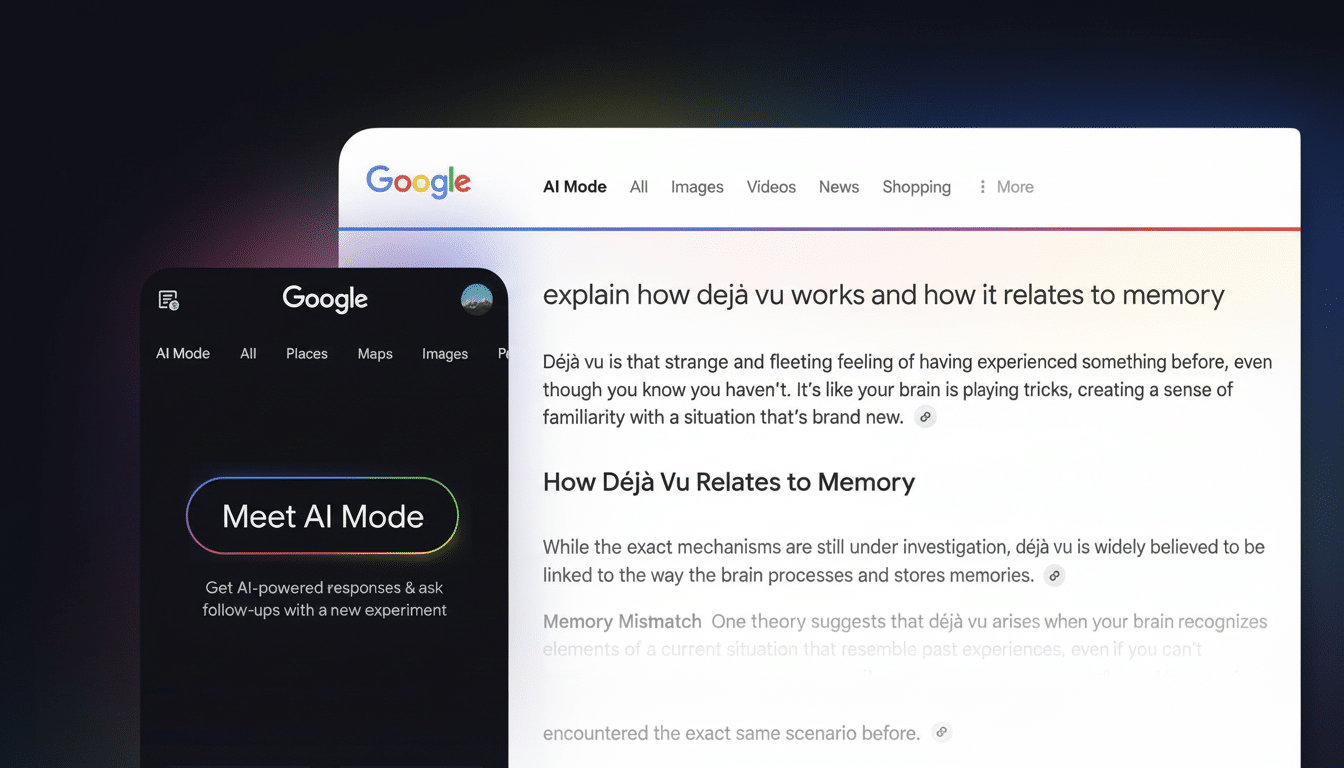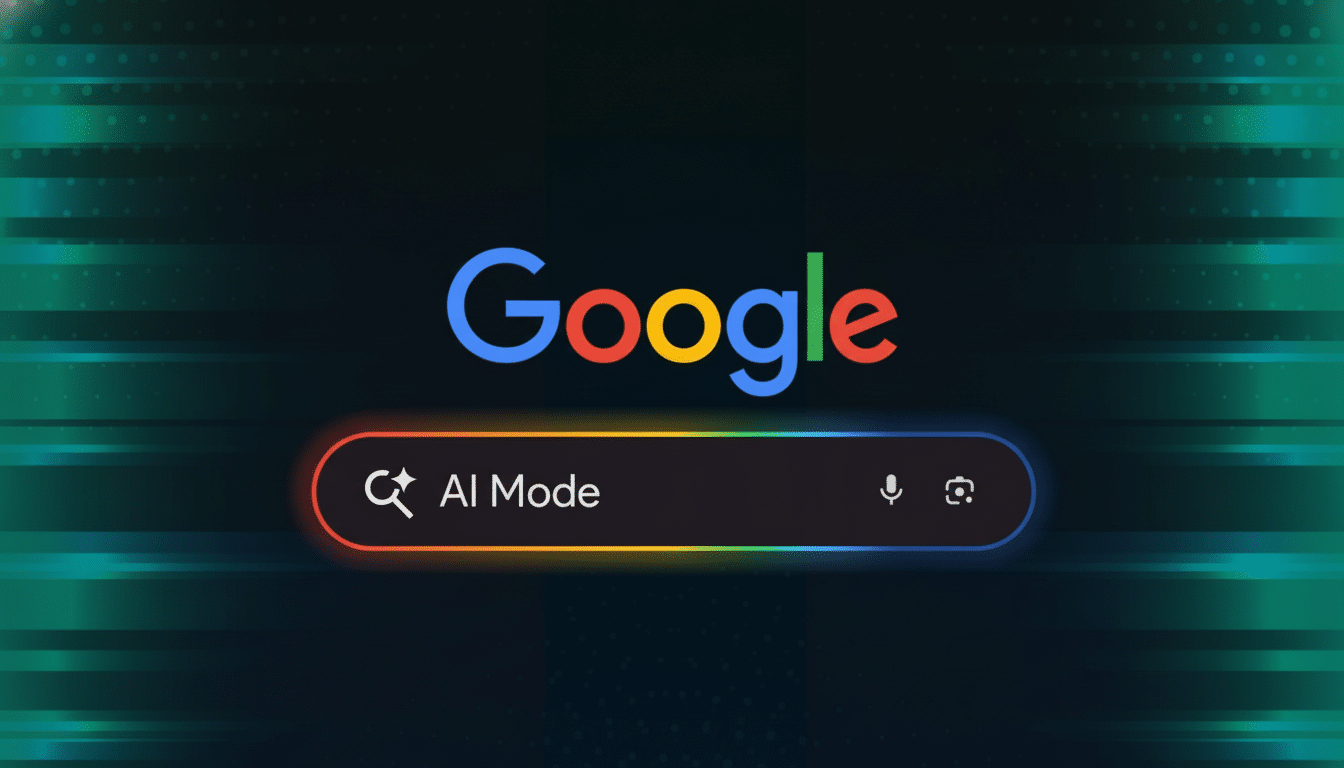Google will be extending AI Mode with agentic abilities that help you scout, secure and book event tickets as well as beauty (ETA May) or wellness (live now) appointments from Search. The feature supports multi-step requests, surfaces real-time options and then deep-links you to checkout or scheduling pages to complete the purchase.
What’s New in AI Mode for Tickets, Beauty, and Wellness
The latest update allows users to request extremely specific ticket or appointment outcomes in natural language. Think “two standing-floor tickets for Friday under $120 each” or “a balayage appointment on the weekend within a 3-mile radius after 2 PM.” AI Mode cross-searches across multiple providers, unifies constraints such as price, time and location, and delivers a curated list of matches with live availability.

For events, AI Mode scrapes listings from major ticketing sources and shows similar options in one place. On the beauty and wellness side, it grabs appointment availability from participating booking platforms and local vendors at large, then directly routes you to the merchant’s page to confirm your appointment. The agent doesn’t auto-purchase; you get to review and finish the process.
The rollout is being made for Search Labs participants in the U.S. As for those limitations: AI Mode is also available to Google AI Pro and Ultra subscribers who get a higher stream limit, which seems to suggest that more complex flows such as making the same set of refinements again or checking multiple potential venues are on offer.
How the AI Mode agent manages tasks and refinements
Agentic in this sense means that you can give the system a request to break out in various stages (undo, filter, compare and route) without having to reiterate your preferences. Tell it to “find balcony seats while avoiding those with restricted views,” and AI Mode takes that into account as it searches sources, offers up clearly labeled trade-offs, such as in an example seen here: total price, fees, notes about the view, and distance.
What’s more, AI Mode now accommodates follow-up clarifications within the thread. You can filter for “cheaper than option three,” change dates or shift to a nearby salon with the same services. The agent retains context between turns and compares recommendations against live inventory, in an effort to reduce bouncing back-and-forth that so often is the case across apps and tabs.
Why it matters for search, local services, and events
This shift transforms Search from an information destination into a task-completion-centric hub for high-intent local and ticketing use cases. Google added restaurant reservations to AI Mode earlier this year; events and beauty expand that playbook into areas where availability and price fluctuate by the minute.

The beauty industry alone highlights the opportunity. McKinsey’s State of Beauty report projects the global beauty market at $430 billion in 2023 with annual growth of 6%–8%, and services remain a sticky, local discovery problem. On the event side, business for consumers is hampered by split listings, fees and differing seat maps — ripe grounds for a middleman who can bring order to options and cut through friction.
Competition is heating up. AI-first search and assistant experiences from companies such as Perplexity and ChatGPT are driving the market towards “do-it-for-me” workflows. Google’s strength is distribution: AI Mode has been rolled out in more than 180 countries since launch, and it now plugs into capabilities like Canvas for planning across multiple sessions and Lens for on-screen queries, which can serve to keep users inside Google’s experience from research to booking.
Safety, reliability, and privacy considerations today
Google says AI Mode is grounded in its quality and safety systems, but it’s still an experiment and can get things wrong. And that caveat counts when you’re juggling time-sensitive inventory and fees that fluctuate upon checkout. Look for clear review steps before payments and merchant handoff, as well as visible prompts when the agent needs more information or results may be partial.
On privacy, this update works from within Search and connects out to merchants for finalization (i.e., that constrains the more sensitive actions the agent performs on your behalf). As Google expands agentic tasks, expect more granular controls around account permissions, form autofill, Wallet integration and calendar access so users can tweak convenience vs. data sharing.
What’s next for AI Mode and agentic booking features
And it’s not hard to see what these additions are pointing at more broadly: agents that will handle complex, multi-criteria errands across local commerce, entertainment and services. Extensions into classes, fitness and last-minute drop-ins would be logical follow-ons, as would deeper tie-ins to waitlists and dynamic pricing insights.
For now, the takeaway is simple: in Search Labs, AI Mode can handle the grunt work when it comes to securing seats and self-care booking. It won’t click “buy” on your behalf, but it will guide you to the right page, filters in place — turning a half-hour of tab juggling into a two-minute decision.

